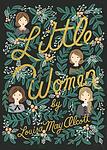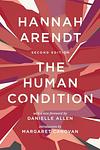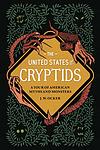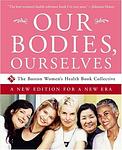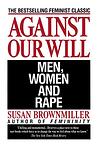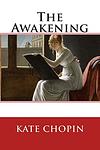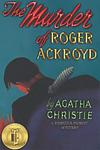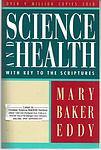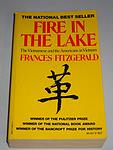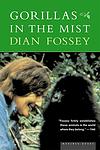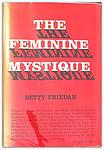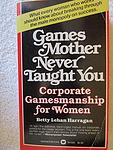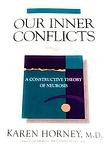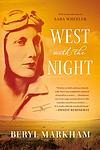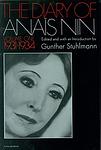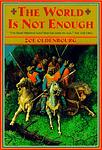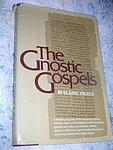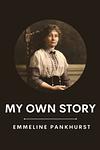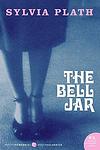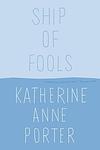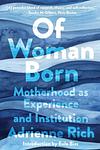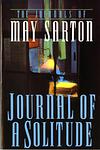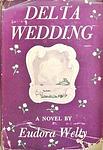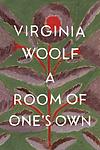75 Books by Women Whose Words Have Changed the World
This is one of the 284 lists we use to generate our main The Greatest Books list.
-
Twenty Years at Hull-House by Jane Addams
"Twenty Years at Hull-House" is a memoir that recounts the author's experiences co-founding and running a settlement house in a poverty-stricken, immigrant neighborhood in Chicago. The book details the struggles and triumphs of the community as they navigate social, economic, and cultural challenges, while also offering insight into the author's own evolution as a social reformer. Throughout, the author emphasizes the importance of empathy, understanding, and community engagement in addressing social inequality.
-
Little Women by Louisa May Alcott
This classic novel follows the lives of the four March sisters - Meg, Jo, Beth, and Amy - as they navigate the challenges and joys of adolescence and adulthood in 19th century New England. As they grow, they grapple with issues of poverty, gender roles, love, and personal identity, each in her own unique way. The story is a testament to the power of family, sisterhood, and female resilience in a time of societal constraints.
-
The House of the Spirits by Isabel Allende
"The House of the Spirits" is a multi-generational saga that explores the lives of the Trueba family, set against the backdrop of political upheaval in an unnamed Latin American country. The narrative is driven by the family's strong and magical women, including clairvoyant Clara and her granddaughter Alba. The story spans over three generations, weaving together personal, social, and political threads, and is rich in elements of magical realism. The novel explores themes of love, violence, social class, and the struggle for power.
-
I Know Why the Caged Bird Sings by Maya Angelou
This memoir recounts the early years of an African-American girl's life, focusing on her experiences with racism and trauma in the South during the 1930s. Despite the hardships she faces, including sexual abuse, she learns to rise above her circumstances through strength of character and a love of literature. Her journey from victim to survivor and her transformation into a young woman who respects herself is a testament to the human capacity to overcome adversity.
-
The Human Condition by Hannah Arendt
The book in question is a philosophical examination of the nature of human activities: labor, work, and action, and their fundamental role in the fabric of society. The author delves into the historical development of these activities, distinguishing them from one another and exploring their transformation in the modern age. The text critically reflects on the decline of the public realm and the rise of the private, the impact of automation on human purpose, and the loss of meaningful political action in contemporary life. The work is a profound inquiry into the ways in which human beings interact with the world, each other, and themselves, ultimately seeking to understand the conditions under which individuals live, act, and establish their presence in the world.
-
Pride and Prejudice by Jane Austen
Set in early 19th-century England, this classic novel revolves around the lives of the Bennet family, particularly the five unmarried daughters. The narrative explores themes of manners, upbringing, morality, education, and marriage within the society of the landed gentry. It follows the romantic entanglements of Elizabeth Bennet, the second eldest daughter, who is intelligent, lively, and quick-witted, and her tumultuous relationship with the proud, wealthy, and seemingly aloof Mr. Darcy. Their story unfolds as they navigate societal expectations, personal misunderstandings, and their own pride and prejudice.
-
The Second Sex by Simone de Beauvoir
This influential work explores the treatment and perception of women throughout history, arguing that women have been repressed and defined only in relation to men. The author presents a detailed analysis of women's roles in society, family, work, and in the creation of their own identities. She discusses the concept of 'the other' and how this has been used to suppress women, while also examining the biological, psychological, and societal impacts of this oppression. The book is a seminal text in feminist theory, challenging traditional notions of femininity and calling for equality and freedom for women.
-
Patterns of Culture by Ruth Benedict
"Patterns of Culture" explores the concept of culture as a collective personality, analyzing the patterns of behavior and thought that define different societies. The author uses examples from diverse cultures such as the Pueblo Indians and the Dobu Islanders to illustrate her point. The book argues that each culture has its own unique pattern and personality, which is shaped by its history, environment, and social structure. The author emphasizes the importance of understanding these patterns in order to fully understand and appreciate the diversity of human cultures.
-
Our Bodies, Ourselves by Unknown
This book is a comprehensive guide to women's health and sexuality, covering a wide range of topics from puberty to menopause. It emphasizes the importance of self-care and provides practical information on topics such as reproductive health, sexual orientation, body image, mental health, and domestic violence. The book is designed to empower women to make informed decisions about their health and well-being, and it encourages them to take control of their own bodies. It also includes personal stories and experiences from diverse women, reflecting a wide range of perspectives and experiences.
-
Jane Eyre by Charlotte Bronte
The novel follows the life of Jane Eyre, an orphan who is mistreated by her relatives and sent to a charity school. As she grows up, Jane becomes a governess at Thornfield Hall, where she falls in love with the brooding and mysterious Mr. Rochester. However, she soon learns of a dark secret in his past that threatens their future together. The story is a profound exploration of a woman's self-discovery and her struggle for independence and love in a rigid Victorian society.
-
Wuthering Heights by Emily Brontë
This classic novel is a tale of love, revenge and social class set in the Yorkshire moors. It revolves around the intense, complex relationship between Catherine Earnshaw and Heathcliff, an orphan adopted by Catherine's father. Despite their deep affection for each other, Catherine marries Edgar Linton, a wealthy neighbor, leading Heathcliff to seek revenge on the two families. The story unfolds over two generations, reflecting the consequences of their choices and the destructive power of obsessive love.
-
Against Our Will by Susan Brownmiller
This book is a comprehensive study of rape throughout history, examining its use as a tool of domination and control, and its societal implications. The author argues that rape is not about sex but about power, and that it is a pervasive issue deeply ingrained in society's patriarchal structures. The book also explores the legal and cultural attitudes towards rape, highlighting the need for change in societal perception and response to this crime.
-
The Good Earth by Pearl S. Buck
This novel tells the story of a poor farmer in rural China, who struggles to survive and prosper. Over time, he manages to build a life for himself and his family, eventually becoming a wealthy landowner. However, his newfound wealth and status lead to a moral decline, as he becomes disconnected from the land that gave him everything. The narrative explores themes of wealth, poverty, and the human connection to the earth.
-
Silent Spring by Rachel Carson
This influential environmental science book presents a detailed and passionate argument against the overuse of pesticides in the mid-20th century. The author meticulously describes the harmful effects of these chemicals on the environment, particularly on birds, hence the metaphor of a 'silent spring' without bird song. The book played a significant role in advancing the global environmental movement and led to a nationwide ban on DDT and other pesticides in the United States.
-
My Antonia by Willa Cather
This novel follows the life of Antonia Shimerda, a Bohemian immigrant to the United States, through the eyes of her childhood friend, Jim Burden. The narrative explores their lives in the harsh environment of the American Midwest, their struggles with poverty, cultural adaptation, and personal growth. Antonia's resilience, strength, and love for life inspire Jim, who moves away for education and career but remains emotionally tied to the woman and the prairie life he left behind. The book is a compelling portrayal of pioneer life, human resilience, and the enduring power of friendship.
-
A Diary From Dixie by Mary Boykin Chesnut
This historical work offers an intimate glimpse into the life and times of the American South during the Civil War through the eyes of a high-society woman. Her diary entries, written between 1861 and 1865, provide a personal and detailed account of the daily struggles, political intrigue, and social dynamics of the Confederacy. As the wife of a prominent Confederate official, the author was well-placed to observe and comment on the key figures and events of the era, revealing the complexities and human realities behind the historical conflict. Her candid observations capture the tumultuous emotions of a nation at war, as well as the personal experiences of loss, hardship, and the changing social fabric of the South.
-
The Awakening by Kate Chopin
"The Awakening" is a novel set in the late 19th century New Orleans, which explores the life of a young woman trapped in societal and marital expectations. She embarks on a journey of self-discovery and independence, defying the norms of her time. The protagonist challenges the traditional roles of women as she seeks personal fulfillment, experiences sexual awakening, and struggles with her desires and responsibilities. The book is a critique of the repressive social norms, particularly regarding women and marriage, of the Victorian era.
-
The Murder of Roger Ackroyd by Agatha Christie
In a small English village, a wealthy man named Roger Ackroyd is found dead, stabbed with a dagger. The victim's friend, a retired detective, comes out of retirement to solve the murder. The detective uncovers a web of deceit, blackmail, and hidden relationships among the victim's family and employees. The shocking twist ending reveals the unlikely murderer and the ingenious method used to commit the crime.
-
Poems of Emily Dickinson by Emily Dickinson
This collection of poetry encapsulates the works of a renowned 19th-century American poet, known for her unique style and themes. The poems, often characterized by their unconventional punctuation and capitalization, explore a wide range of topics including death, immortality, love, and nature. The poet's introspective and often cryptic style has made her one of the most studied and celebrated figures in American literature.
-
Science And Health by Mary Baker Eddy
This book is a seminal text in the Christian Science movement, presenting the author's comprehensive views on spirituality and healing. It explores the premise that true understanding and practice of spiritual laws, as interpreted from the Bible, can lead to healing and an improved mind-body-spirit connection. The author challenges conventional medical practices and asserts that sickness is rooted in mental error and misunderstanding of God, advocating for a system of healing through prayer and a deeper understanding of divine principles. The work aims to empower individuals with the knowledge that they can overcome physical and mental ailments through spiritual enlightenment and faith in a divine higher power.
-
Middlemarch by George Eliot
Set in the fictitious English town of Middlemarch during the early 19th century, the novel explores the complex web of relationships in a close-knit society. It follows the lives of several characters, primarily Dorothea Brooke, a young woman of idealistic fervor, and Tertius Lydgate, an ambitious young doctor, who both grapple with societal expectations, personal desires, and moral dilemmas. Their stories intertwine with a rich tapestry of other townsfolk, reflecting themes of love, marriage, ambition, and reform, making a profound commentary on the human condition.
-
The Boston Cooking School Cook Book by Fannie Farmer
This iconic culinary reference, first published in the late 19th century, revolutionized American cooking by introducing standardized measurements and a systematic approach to kitchen procedures. It serves as a comprehensive guide to American cuisine, offering a wide array of recipes ranging from simple home fare to more elaborate dishes, along with detailed instructions on techniques, kitchen equipment, and ingredient selection. The book's emphasis on precision and clarity in recipe formulation made it an invaluable resource for both the novice and experienced cook, securing its place as a staple in American kitchens and influencing the way cooking is taught for generations.
-
Fire in the Lake by Frances FitzGerald
This book is an in-depth analysis of the Vietnam War from the perspective of the Vietnamese people and culture. The author explores the historical, cultural, and social factors that contributed to the conflict, providing a comprehensive understanding of the war beyond the American involvement. It delves into the roots of Vietnamese nationalism, the impact of French colonialism, and the ideological differences between North and South Vietnam, giving the reader a nuanced view of this complex period in history.
-
Gorillas In The Mist by Dian Fossey
This book is a remarkable account of an eminent primatologist's thirteen-year study and close encounters with the mountain gorillas of the African rainforest. The author immerses herself in the lives of these majestic creatures, observing their complex social structure, behaviors, and interactions. Through her passionate and dedicated research, she develops a deep bond with the gorillas, gaining unprecedented acceptance by the animals and a unique insight into their world. The work also highlights the threats to the gorillas' survival, primarily from poaching and habitat destruction, and the author's relentless efforts to protect these magnificent animals and their environment.
-
The Diary of a Young Girl by Anne Frank
This book is a real-life account of a young Jewish girl hiding from the Nazis during World War II, written in diary format. The girl and her family are forced to live in a secret annex in Amsterdam for two years, during which she writes about her experiences, fears, dreams, and the onset of adolescence. The diary provides a poignant and deeply personal insight into the horrors of the Holocaust, making it a powerful testament to the human spirit.
-
The Feminine Mystique by Betty Friedan
This groundbreaking book is a sociological examination of the dissatisfaction felt by American housewives in the mid-20th century. The author argues that women are not naturally fulfilled by devoting their lives to homemaking and child-rearing, challenging the widely accepted belief of the era. It explores the idea of the "problem that has no name" - the widespread unhappiness of women in the 1950s and early 1960s. The book is considered one of the catalysts of the second-wave feminist movement.
-
Living My Life by Emma Goldman
"Living My Life" is an autobiography that chronicles the life of a prominent and controversial anarchist and feminist figure of the early 20th century. The memoir details her passionate involvement in the struggle for workers' rights, free speech, and social reform. It also delves into her personal experiences, including her emigration from Russia to the United States, her tumultuous relationships, and her eventual deportation. Throughout the narrative, the author reflects on the philosophical and political beliefs that drove her activism, offering a candid and intimate look at the challenges she faced in her pursuit of social justice and her unwavering commitment to her ideals.
-
The Female Eunuch by Germaine Greer
This book is a seminal feminist text that explores the oppression of women in society. It critiques the traditional roles and expectations of women in the mid-20th century, arguing that societal norms and conventions force women into a secondary, submissive role, effectively castrating them. The book encourages women to reject these norms and to embrace their own sexual liberation, arguing for the need for a revolution in the way women perceive themselves and their place in society.
-
The Well of Loneliness by Radclyffe Hall
"The Well of Loneliness" is a groundbreaking novel that explores the life of a woman named Stephen Gordon, who identifies as a lesbian in early 20th century England. The story delves into the societal and personal struggles Stephen faces due to her sexual orientation, including isolation, rejection, and the struggle for acceptance. The novel is a plea for understanding and tolerance, shedding light on the challenges faced by the LGBTQ+ community during a time when their identities were largely misunderstood and stigmatized.
-
Mythology by Edith Hamilton
This book is a comprehensive guide to ancient Greek, Roman, and Norse mythologies, providing detailed accounts of various gods, goddesses, heroes, and other mythological creatures. It includes well-known stories like the Odyssey and the Iliad, along with lesser-known tales, and analyzes their significance in the cultures they originated from. The book also delves into the origins of these myths and their influence on later civilizations, offering readers a deep understanding of ancient cultures and their belief systems.
-
Games Mother Never Taught You by Betty Lehan Harragan
This book serves as a seminal guide for women navigating the corporate world, especially during the era it was written. It provides an insightful analysis of the male-dominated business environment and offers strategic advice for women to succeed professionally. The author uses the metaphor of sports and games to illustrate the unwritten rules of the workplace, highlighting the importance of understanding and mastering these rules to effectively compete and advance in one's career. The book acts as a mentor, empowering women with the knowledge and tools to break through the glass ceiling and achieve their full potential in industries traditionally dominated by men.
-
Our Inner Conflicts by Karen Horney
The book delves into the complex world of psychoanalysis, exploring the internal struggles that individuals face as a result of conflicting impulses and desires. The author argues that these internal battles are rooted in the basic human need for security and affection, which, when threatened, can lead to neuroses. The work emphasizes the importance of self-awareness and the examination of one's own psychological mechanisms to overcome these conflicts. This introspective journey is presented as a pathway to personal growth, self-understanding, and ultimately, mental health.
-
Their Eyes Were Watching God by Zora Neale Hurston
This novel follows the life of Janie Crawford, a young African-American woman, in the early 20th century. She embarks on a journey through three marriages and self-discovery while challenging the societal norms of her time. The narrative explores her struggle for personal freedom, fulfillment, and identity against the backdrop of racism and gender expectations, ultimately emphasizing the importance of independence and personal growth.
-
The Story of My Life by Helen Keller
This book is an autobiography of a woman who, despite being blind and deaf from a very young age, overcomes her physical limitations and achieves great success in her life. Guided by her teacher, she learns to communicate and read, eventually attending college. The book offers a powerful and inspiring account of her determination, resilience, and unwavering spirit in the face of adversity.
-
The Woman Warrior: Memoirs of a Girlhood Among Ghosts by Maxine Hong Kingston
This memoir explores the life of a first-generation Chinese-American woman, navigating the complexities of her dual heritage. Through five interconnected stories, the book delves into the author's childhood experiences, her mother's tales of old China, and the struggles of reconciling these two worlds. The memoir is a blend of reality and mythology, illustrating the author's struggle with her identity, the expectations of her traditional Chinese family, and the challenges of growing up in a predominantly white American society.
-
On Death and Dying by Elisabeth Kübler-Ross
This groundbreaking book explores the five stages of grief experienced by terminally ill patients. The author, a Swiss-American psychiatrist, introduces the concept of the five stages: denial, anger, bargaining, depression, and acceptance, which has since been universally recognized and applied in various fields. The book is based on the author's series of interviews with dying patients, providing an empathetic and insightful look into the emotional and psychological experiences of those facing death.
-
Diet For A Small Planet by Frances Moore Lappe
The book is a groundbreaking work that challenges conventional beliefs about hunger, food production, and diet. It introduces the concept of protein complementarity and argues that a plant-based diet can meet human nutritional needs while reducing the strain on the environment. The book provides evidence that a meat-centric diet is neither necessary for health nor sustainable for the planet, and it offers practical guidance on how to make more environmentally responsible and nutritious food choices. It also includes a variety of vegetarian recipes that emphasize the efficient use of resources and the importance of understanding the ecological impact of our food decisions.
-
To Kill a Mockingbird by Harper Lee
Set in the racially charged South during the Depression, the novel follows a young girl and her older brother as they navigate their small town's societal norms and prejudices. Their father, a lawyer, is appointed to defend a black man falsely accused of raping a white woman, forcing the children to confront the harsh realities of racism and injustice. The story explores themes of morality, innocence, and the loss of innocence through the eyes of the young protagonists.
-
The Golden Notebook by Doris Lessing
The novel centers around a woman named Anna Wulf, a writer who keeps four notebooks, each representing a different aspect of her life: her experiences in Africa, her current life in London, a novel she is writing, and her personal experiences. As Anna's mental state deteriorates, she attempts to unify her fragmented self in a fifth notebook, the golden notebook. The novel explores themes of mental breakdown, communism, the changing role of women, and the fear of nuclear war.
-
Gift From The Sea by Anne Morrow Lindbergh
In this lyrical and introspective work, the author reflects on the complexities of a woman's life and the challenges of balancing societal expectations, relationships, and personal growth. Drawing inspiration from her time on a seaside retreat, she uses the metaphor of various shells found on the beach to explore themes of solitude, love, and the evolving stages of a woman's life. Through her meditations, she advocates for simplicity and inner peace, suggesting that women can find strength and renewal by periodically withdrawing from the demands of everyday life, much like the ebb and flow of the ocean's tides.
-
The Cancer Journals by Audre Lorde
The book is a powerful exploration of the author's personal journey through the diagnosis, treatment, and aftermath of breast cancer. It is a profound reflection on illness, identity, and survival, blending personal narrative with critical insights into the societal pressures women face regarding their bodies and health. The author confronts the silence surrounding cancer and the expectations placed on women to maintain a semblance of normalcy and femininity, even in the face of life-threatening disease. Through her writing, she challenges the stigmatization of illness and the notion of compulsory positivity, advocating instead for the strength found in vulnerability and the necessity of speaking one's truth.
-
The Heart Is A Lonely Hunter by Carson McCullers
The novel explores the spiritual isolation of misfits and outcasts in a small town of the U.S. South. Its protagonist is a deaf-mute who becomes the confidant for various troubled souls including a black physician, a bitter labor activist, a lonely young girl, and a struggling café owner. Each pours their heart out to him, but he remains unable to respond, reflecting the deep human need for connection and understanding.
-
The Garden Party And Other Stories by Katherine Mansfield
This collection of short stories delves into the complexities of human emotions and social dynamics through the lens of early 20th-century life. The narratives, often focusing on moments of epiphany or poignant realizations, explore themes such as class distinction, innocence, and the passage of time. The titular story captures the contrast between the carefree world of the wealthy and the harsh realities of the working class, as seen through the eyes of a young girl. Throughout the anthology, the author's keen observations and vivid prose invite readers to reflect on the subtleties of everyday experiences and the intricate tapestry of human relationships.
-
West With the Night by Beryl Markham
The book is a memoir of a British-born woman who grew up in Kenya during the early 20th century. She recounts her unconventional upbringing, her passion for horses, and her career as a bush pilot. The narrative is filled with vivid descriptions of the African landscape and wildlife, as well as her personal adventures and encounters. The book culminates with her historic solo flight across the Atlantic from east to west.
-
Coming of Age in Samoa by Margaret Mead
"Coming of Age in Samoa" is a groundbreaking anthropological study that explores adolescence, sexuality, and social norms in Samoan society. The author lived among the Samoans in the 1920s, observing and recording their way of life, particularly focusing on the experiences of teenage girls. The book challenges Western views on sexual morality and the nature versus nurture debate, suggesting that culture plays a significant role in adolescent development and behavior. The author's observations indicate that Samoan teenagers face less stress and confusion than their American counterparts, largely due to their society's relaxed attitudes towards sex and clear societal roles.
-
My Life by Golda Meir
The book is an autobiography of one of the most influential women in modern history, who rose from the poverty of her childhood in Russia and Milwaukee to become the Prime Minister of Israel. It offers a compelling account of her role in the founding of the state of Israel and its early years, providing personal insights into the myriad political and military challenges the nascent country faced. The narrative is interwoven with her own life story, including her experiences with immigration, education, and her rise through the ranks of the labor movement and political leadership, all set against the backdrop of the 20th century's tumultuous events leading up to and following the establishment of Israel.
-
Collected Works of Edna St. Vincent Millay by Edna St. Vincent Millay
This collection encompasses the prolific works of a renowned Pulitzer Prize-winning poet. The book includes her famous sonnets, lyrical poems, and plays, all of which are marked by their romanticism, feminism, and social and political commentary. Her profound exploration of human emotions and experiences, particularly love and loss, along with her distinctive poetic style, has left an indelible mark on American literature.
-
Gone With the Wind by Margaret Mitchell
Set against the backdrop of the American Civil War and Reconstruction era, this novel follows the life of a young Southern belle, who is known for her beauty and charm. Her life takes a turn when she is forced to make drastic changes to survive the war and its aftermath. The story revolves around her struggle to maintain her family's plantation and her complicated love life, especially her unrequited love for a married man, and her tumultuous relationship with a roguish blockade runner.
-
The Complete Poems of Marianne Moore by Marianne Moore
This comprehensive collection comprises the complete works of a renowned 20th-century poet, known for her precise and innovative use of language. The poems range from the early to late stages of her career, reflecting her changing perspectives and evolving style. The poet's unique voice, often characterized by her keen observations, wit, and love for nature, shines through in this collection, making it a must-read for both scholars and fans of modernist poetry.
-
Song of Solomon by Toni Morrison
The novel explores the life of an African-American man, Macon "Milkman" Dead III, from birth to adulthood. Set against the backdrop of racial tension in the mid-20th century United States, it delves into his journey of self-discovery and understanding his heritage. As Macon embarks on a literal and figurative journey south to reconnect with his roots, he encounters various characters that help him understand his family history and the power of community. The narrative is deeply rooted in African-American folklore and mythology, offering a profound commentary on identity, personal freedom, and the destructive power of racism.
-
The Tale of Genji by Murasaki Shikibu
"The Tale of Genji" is a classic work of Japanese literature from the 11th century, often considered the world's first novel. The story revolves around the life of Genji, the son of an emperor, exploring his political rise, romantic relationships, and the complex court life of the Heian era. The novel is celebrated for its detailed characterization and its analysis of the different forms of love.
-
The Diary of Anais Nin, 1931-1934 by Anaïs Nin
This book is a deeply personal journal of a woman's life from 1931 to 1934, providing an intimate look into her experiences, thoughts, and emotions during this period. The author explores her relationships, her struggles with her writing, and her journey of self-discovery. The diary also captures her interactions with notable personalities of the time, giving readers a unique glimpse into the cultural and social milieu of the early 20th century. Her introspective and poetic style adds a layer of depth to her observations and reflections.
-
The Complete Stories of Flannery O'Connor by Flannery O'Connor
This comprehensive collection of short stories showcases the author's exploration of the human condition, particularly in the American South. The stories, known for their dark humor, religious themes, and grotesque characters, delve into the complexities of morality, ethics, and the struggle between good and evil. The author's unique blend of Southern Gothic style and religious allegory creates a vivid portrait of a society grappling with its own contradictions and shortcomings.
-
The World Is Not Enough by Zoe Oldenbourg
The novel is a historical fiction that delves into the complexities of medieval life, exploring the intricate tapestry of love, power, and faith during the time of the Crusades. Through the eyes of a noble family, the narrative weaves a rich depiction of 12th-century Europe, capturing the tensions between Christian kingdoms and the Muslim world. The story portrays the struggles of individuals caught in the grand sweep of history, as they navigate the challenges of their era, from the intricacies of court politics to the brutal realities of warfare, all while confronting their own personal ambitions, desires, and the ever-present influence of the Church.
-
Silences by Tillie Olsen
"Silences" is a seminal work of literary criticism and feminist thought that explores the systemic obstacles and personal challenges that have historically silenced the voices of writers, particularly women and those from working-class or marginalized backgrounds. The book delves into the patterns of literary silence due to sex, social circumstance, and the demands of daily life that have often left these voices unheard. It combines personal reflection, historical analysis, and a passionate call to recognize and overcome the conditions that inhibit creative expression. The author argues that the loss of these voices is a detriment to literature and society as a whole, advocating for a more inclusive understanding of the literary canon and the conditions necessary for the full flowering of artistic talent.
-
The Gnostic Gospels by Elaine Pagels
This book explores the findings of the Nag Hammadi library, a collection of gnostic texts discovered in 1945. The author examines these texts, which were excluded from the canonical Bible, and discusses their implications for our understanding of early Christianity. The book delves into the diversity of beliefs in early Christian communities, the role of women in these groups, and the political and theological reasons behind the formation of the orthodox Christian canon.
-
My Own Story by Emmeline Pankhurst
"My Own Story" is an autobiography that chronicles the life and work of a prominent leader in the British suffragette movement, detailing her tireless struggle for women's voting rights in the early 20th century. The narrative offers a personal account of the political and social challenges faced by women activists, including the militant tactics employed, such as hunger strikes and civil disobedience, which often resulted in imprisonment. The author passionately articulates the motivations behind her activism, the sacrifices made, and the impact of her efforts on the eventual extension of suffrage to women, providing a compelling insight into the history of the fight for gender equality.
-
The Bell Jar by Sylvia Plath
The novel follows the story of a young woman who wins a guest editorship at a magazine in New York City and, after a series of personal and professional disappointments, suffers a mental breakdown and returns to her family, where she continues to struggle with depression and suicidal thoughts. The protagonist's experiences in psychiatric institutions and her attempts to reclaim her life are depicted with brutal honesty, making it a poignant exploration of mental illness and the societal pressures faced by women in the mid-20th century.
-
Ship Of Fools by Katherine Anne Porter
The novel is a penetrating portrayal of a diverse group of passengers aboard a German ocean liner bound for Bremerhaven from Mexico in 1931. As the voyage progresses, the narrative delves into the lives and interactions of the characters, revealing their personal ambitions, prejudices, and secrets. The microcosm of the ship serves as a reflection of the societal and political tensions of the era, particularly the rise of fascism and the looming threat of World War II. Through the interwoven stories of the passengers, the book explores themes of human folly, moral ambiguity, and the complexities of social dynamics in a world on the brink of profound change.
-
Of Woman Born by Adrienne Rich
The book is a seminal feminist text that combines personal narrative with scholarly research to critically examine the institution of motherhood, challenging traditional notions and cultural myths. The author explores the complex relationships between mothers and society, the expectations placed upon them, and the impact of gender roles. Through a blend of history, sociology, and personal reflection, the work delves into the ways in which motherhood has been shaped by patriarchal structures, often at the expense of women's autonomy and identity. It calls for a redefinition of motherhood that acknowledges women's diverse experiences and promotes both individual freedom and social support for mothers.
-
The Autobiography Of Margaret Sanger by Margaret Sanger
This autobiography chronicles the life and work of a pioneering activist for women's reproductive rights, who played a critical role in the birth control movement in the early 20th century. The author candidly recounts her experiences growing up in a working-class family, her work as a trained nurse, and her tireless efforts to educate women about contraception, despite frequent arrests and legal challenges. Her narrative weaves personal struggles with her broader mission to empower women through access to birth control, a cause that would eventually lead to the establishment of the first family planning clinics and the foundation of an organization that would become a global leader in reproductive health.
-
The Poems of Sappho by Sappho
This book is a collection of lyric poetry by an ancient Greek female poet, known for her passionate verses on love and relationships. The poems, often composed in the first person, offer a unique insight into the life and emotions of women in antiquity, touching on themes such as desire, jealousy, and personal introspection. Despite many of her works being lost over time, the surviving fragments continue to be celebrated for their vivid imagery and emotional depth.
-
Journal Of A Solitude by May Sarton
"Journal of a Solitude" is a reflective and intimate exploration of the author's year-long journey through solitude, where she delves into the complexities of her inner life, creativity, and relationships with others. As a deeply personal account, the narrative weaves through the seasons and the natural world, offering insights into the challenges and rewards of a life dedicated to artistic expression, self-discovery, and the pursuit of emotional and intellectual growth. The author confronts her fears, joys, and the often solitary nature of the creative process, revealing the profound impact of solitude on the human spirit.
-
Frankenstein by Mary Shelley
This classic novel tells the story of a young scientist who creates a grotesque but sentient creature in an unorthodox scientific experiment. The scientist, horrified by his creation, abandons it, leading the creature to seek revenge. The novel explores themes of ambition, responsibility, guilt, and the potential consequences of playing God.
-
Illness As Metaphor by Susan Sontag
The book is a critical examination of the ways in which society uses metaphors to depict and understand illness, particularly focusing on tuberculosis and cancer. The author argues that the metaphors and myths surrounding certain diseases can often be harmful, adding a layer of stigma and moral judgment to the patient's experience. By analyzing historical and cultural attitudes, the book challenges the victim-blaming narratives and encourages a more empathetic and fact-based approach to understanding illness, advocating for the separation of the patient's identity from their disease.
-
The Autobiography of Alice B. Toklas by Gertrude Stein
This book is an innovative and unconventional autobiography, penned from the perspective of the author's life partner, providing an intimate view into the lives of the Parisian avant-garde in the early 20th century. It offers a personal account of their life together, filled with anecdotes of their interactions with famous figures such as Picasso, Matisse, and Hemingway. The narrative also delves into the author's own thoughts and experiences, creating a unique blend of biography, autobiography, and personal memoir.
-
Uncle Tom's Cabin by Harriet Beecher Stowe
This renowned novel provides a harsh critique of American slavery through the story of Uncle Tom, a long-suffering black slave. The narrative follows Tom as he is sold and transported to the harsh South, encountering a variety of characters, both kind and cruel. The novel powerfully explores themes of faith, the immorality of slavery, and the concept of humanity, ultimately contributing to the abolitionist cause and leaving a significant impact on the American perception of slavery.
-
A Distant Mirror by Barbara Tuchman
"A Distant Mirror" is a historical narrative that vividly depicts the calamitous 14th century, a time marked by the Black Death, religious strife, and the Hundred Years War. The book follows the life of a French nobleman, offering a detailed account of his experiences and the broader social, political, and cultural transformations of the era. The author draws parallels between the 14th century and the 20th century, highlighting recurrent patterns in history such as warfare, pandemics, and societal unrest.
-
Kristin Lavransdatter by Sigrid Undset
Set in 14th century Norway, "Kristin Lavransdatter" follows the life of its titular character from her childhood, through her tumultuous and passionate marriage to Erlend Nikulausson, to her life as a mother and eventual widow. The narrative explores Kristin's struggles with faith, societal expectations, and personal desires, offering a vivid portrayal of medieval Scandinavian life along the way. Despite the many hardships she faces, Kristin remains a strong and resilient woman, embodying the spirit of her time.
-
The Color Purple by Alice Walker
Set in the early 20th century, the novel is an epistolary tale of a young African-American woman named Celie, living in the South. She faces constant abuse and hardship, first from her father and then from her husband. The story unfolds through her letters written to God and her sister Nettie, revealing her emotional journey from oppression to self-discovery and independence, aided by her relationships with strong women around her. The narrative explores themes of racism, sexism, domestic violence, and the power of sisterhood and love.
-
Delta Wedding by Eudora Welty
Set in the Mississippi Delta in the 1920s, the novel revolves around the Fairchild family as they prepare for the wedding of their daughter Dabney. Through the eyes of a young cousin, Laura McRaven, who is visiting the Fairchilds' sprawling plantation, the narrative delves into the complex dynamics of Southern family life, revealing the intricate relationships, traditions, and social expectations that bind the family members. The story unfolds in a richly detailed and atmospheric setting, capturing the rhythms of Southern speech and the lush, oppressive heat of the Delta, while exploring themes of belonging, change, and the powerful ties of family and community.
-
Ethan Frome by Edith Wharton
Set in a bleak New England landscape, the book tells the story of Ethan Frome, a poor, hardworking farmer who is married to a sickly, bitter woman named Zeena. When Zeena's young cousin Mattie comes to live with them, Ethan becomes infatuated with her, leading to a tragic love triangle. The narrative explores themes of passion, duty, and the oppressive nature of rural poverty.
-
The Collected Works Of Phillis Wheatley by Phillis Wheatley
"The Collected Works of Phillis Wheatley" is an anthology of poetry and letters by the first African American woman to be published, offering a profound insight into the life and mind of an 18th-century enslaved woman who rose to literary prominence. Her work, which includes elegies and poems on various subjects, reflects her classical education and her unique perspective on themes such as morality, religion, and identity. Despite her status as a slave, her eloquence and erudition earned her recognition among the intellectuals of her time, and her writing continues to be celebrated for its artistry and its contribution to the understanding of the African American experience during the colonial period.
-
A Vindication of the Rights of Woman by Mary Wollstonecraft
This influential work from the late 18th century argues passionately for the education and societal recognition of women. The author asserts that women are not naturally inferior to men, but appear to be only because they lack education. She suggests that both men and women should be treated as rational beings and imagines a social order founded on reason. The book is considered one of the earliest works of feminist philosophy.
-
A Room of One's Own by Virginia Woolf
This book is an extended essay that explores the topic of women in fiction, and the societal and economic hindrances that prevent them from achieving their full potential. The author uses a fictional narrator and narrative to explore the many difficulties that women writers faced throughout history, including the lack of education available to them and the societal expectations that limited their opportunities. The central argument is that a woman must have money and a room of her own if she is to write fiction.
Women's National Book Association, 75 Books
A different perspective on literature written by women. These works were selected by members of the Women's National Book Association in observance of their 75th anniversary in 1992. The list honours women "whose words have changed the world" and who "have brought insight, awe, and pleasure to countless readers over the years".
Added about 2 months ago.
This list has a weight of 48%. To learn more about what this means please visit the Rankings page.
Here is a list of what is decreasing the importance of this list:
- List: only covers 1 specific gender
- Voters: specific voter details are lacking
- Voters: are mostly from a single country/location
- List: criteria is not just "best/favorite"
If you think this is incorrect please e-mail us at [email protected].

